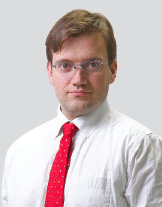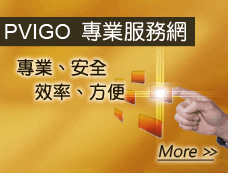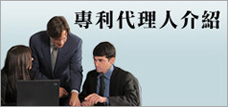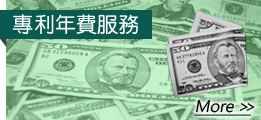美國專利法的變革正演變成對於美國法律一般實務會構成問題的情況。眾所周知的,近來在美國,由非專利實施實體(Non-Practicing Entities;以下簡稱NPE)所提起之訴訟已大幅增加。其中一些NPE藉著使用有問題而形同騷擾的戰術操弄專利法律系統,並運用此種手段於其收購的大量專利組合(patent portfolio) 以從中獲利。
這些NPE每天仍繼續不斷地提起訴訟而未曾顯現疲態。因此,企業、律師與相關人等都殷切企盼美國政府接下來進行的專利改革活動:提出一個可以實際解決此一日益嚴重問題的辦法。
美國政府意識到了這個問題,並開始推動立法以避免更為騷擾又具有破壞性的NPE實務操作,因此有兩項並列之立法法案 - 眾議員Bob Goodlatte的「創新法案」(“Innovation Act”bill (H.R. 3309))以及參議員Patrick Leahy的「專利透明化與改進法案」(Patent Transparency and Improvements Act of 2013 (S.1720)),皆已通過國會兩院的審查。每項修法草案都引入新的規則,以遏制積極的NPE採行有問題的騷擾戰術。這些議題包括專利所有權資訊透明化、客戶訴訟中止(customer stay)、編纂重複專利原則(double patenting doctrine)入法、提高訴訟成案基準(plea standings)、將美國專利商標局與地方法院之申請專利範圍解讀流程,以及寄發警告函(demand letter)之實務標準化的規定等。然而,在任一個修法草案正式通過成為法律之前,可能仍需耗時一年之久。
但若上述這些規定確實成為法律,這就顯示出美國專利法已經演變成一個具有專門法庭實務規則之獨特類型的法律。
在專利界中一些非常具有影響力的人卻認為,法官現在已經擁有可以用來踐行這些策略之工具,因此並沒有施行新規定之必要。其中一位具有這樣影響力的人,就是美國聯邦巡迴上訴法院的首席法官Randall R. Rader。他們指出防治NPE使用有問題的戰術的最佳辦法,就是由法官來運用可以減少訴訟成本之迅捷判決(Summary Judgment)與執行令(Implement Order),例如延緩證據發現(Discovery)程序,或是在案件被認定為「例外」的情況下,依據專利法規定轉移訴訟費用分擔(註:由一方負擔他方所花費的部分或全額訴訟費用,尤其是律師費用)等等措施。
最高法院最近正在決定什麼是適用於轉移訴訟費用分擔之「例外」情況,而對於Octane Fitness 與 Highmark兩件案子進行聽審。依據目前的相關判例(Brooks Furniture Manufacturing, Inc. v. Dutailier International, Inc., 393 F.3d 1378 (Fed. Cir. 2005)),提起該訴訟必須是毫無客觀基礎並且是基於惡意,才會被法官宣告為「例外」的情況,而不援引雙方須各自支付自己的訴訟費用這項存在已久的美式原則(America Rule)。傳統以來聯邦巡迴法院一直抗拒採用此費用轉移獎勵措施,特別是在被控侵權方是勝訴方時。
這案例是美國一般法律體系中的重要案例,因為美國的一般法庭實務規定與英國的法律制度規定(註:English Rule)不同,其規定每一方都應負責支付自己的律師費(除非相關法條有明文規定此特殊權力,或是在合約上允許對另一方主張這些費用),所以這項規定係被稱為「美式原則」(America Rule)。美式原則的基礎是,人們不應該基於若敗訴時將需要負擔大筆的辯護成本(註:對方聘請的高薪律師所將耗費的訴訟費用),就被阻礙或因害怕而不敢上法庭去尋求正義,因為這將會對於法律與社會的公正衡平,帶來不利的影響。那麼為了防治NPE採用有問題的騷擾策略帶來之專利法課題,我們應該改變這一存在已久的美式原則嗎?
在2014年2月底,美國最高法院針對於這兩件案子進行言詞辯論庭。兩方的論點都顯示有一些法官的立場已經相當明確,但是對於適當的結論應該為何,兩者的論辯尚未達成共識。現在無論是專利界還是一般美國法學界,都在等待判決結果出爐。
不論美國將採取哪種解決方案,來對抗咄咄逼人的積極NPE現象,這都意味著美國專利法將會演變成獨有的特殊實務規定。人們就必須再次考慮這對於美國專利擁有者智慧財產的價值,以及其付費取得對於專利排他權進行主張或與之對抗之法律諮詢意見的價值,將會導致怎樣的影響。
 |
|
| 作者: |
郭史蒂夫 歐洲專利律師 |
| 現任: |
北美智權教育訓練處 /歐洲專利律師 |
| 經歷: |
Bryers事務所 歐洲專利律師
Bugnion SpA事務所 歐洲專利學習律師
Notabartolo & Gervasi事務所 歐洲專利學習律師 歐洲專利局 實習生
英國牛津大學生物化學、細胞與分子生物系,生化碩士
英國倫敦大學瑪莉皇后學院,智財管理碩士 |
|
|
Will patent Law change general US Law practice?
Stefano John NAIP Education & Training Group / European Patent Attorney
US Patent Law is evolving into something that is causing problems within the general practice of US Law. As is well known, litigation by non-practicing entities (NPE’s) has increased greatly in the US recently. Some NPE’s acquire large patent portfolios with the sole purpose of using the patent legal system to enrich themselves by using questionable and frivolous tactics.
These entities are continuing to file lawsuits daily, showing no signs of slowing down. Therefore, corporations and attorneys alike are eagerly awaiting the US government’s next move on patent reform – a move that will actually address this growing practice.
The US Government is aware of the problem and is in the process of promoting legislation to prevent the more frivolous and damaging NPE practices, so much that two pieces of apposite legislation are passing through both houses of congress – Bob Goodlatte’s “Innovation Act” bill (H.R. 3309) and Senator Patrick Leahy ‘s Patent Transparency and Improvements Act of 2013 (S.1720). Each piece of legislation proposes introducing new rules to curb the questionable tactics used by the aggressive NPE’s. These include addressing issues such as transparency of patent ownership, customer stay, codifying the double patenting doctrine, heightened plea standings, standardizing the process for claim construction across the USPTO and district court and also the practice of sending pre-litigation demand letters. However it can be up to a year before one these pieces of legislation will actually become Law.
When, and if, it did become Law, it would show how US patent Law is evolving into its own type of specific Law with specialized rules of practice.
Some very influential people within the patent community however believe that judges already have tools at their disposal to implement these strategies, and that therefore there is no need to implement new laws. One such influential person is the Chief Judge of the US Fed Circuit, Judge Randall R. Rader. They argue that the best way to prevent NPE’s questionable tactics is for the judges to use summary judgment and implement orders that would decrease litigation expenses, such as delaying discovery or reversing fees under the Patent Act when a case is found to be “exceptional”.
The Supreme Court has recently heard two cases, Octane Fitness and Highmark, on what is “exceptional” with respect to shifting of fees. According to the current case law (Brooks Furniture Manufacturing, Inc. v. Dutailier International, Inc., 393 F.3d 1378 (Fed. Cir. 2005)), the lawsuit must be both objectively baseless and brought in bad faith in order a court judge to declare the case “exceptional” and set aside the long standing America Rule that both sides pay their own way. The Federal Circuit has traditionally been resistant to fee shifting awards – especially in cases where an accused infringer is the prevailing party.
This is an important case within the general US legal system because general US practice, unlike for example British legal system, provides that each party is responsible for paying its own attorney's fees (unless specific authority granted by statute or contract allows the assessment of those fees against the other party). This is known as the American rule. The principle underlying the American rule is that people should not be discouraged/scared of seeking justice in the courts by having to pay the defendant's expenses in case they lost, because it would be a detriment to both the equity of the Law and society. Should patent Law’s issues with questionable tactics used by NPE change this long-standing US principle?
Oral arguments were held at the US Supreme Court at the end of February 2014 on the two cases. Both side’s arguments showed a few Justices staking out pretty clear positions, but neither argument suggested any existing consensus about the appropriate outcome. Both the patent community and general legal US profession await to see what the outcome will be.
Whichever solution is taken to fight the phenomenon of aggressive NPE’s in the US, it will mean that patent Law will evolve into its own specialist practice. One has to then consider what the consequences of that may mean for US patent owners on the value of their IP and the value they place on the legal advice they pay for in either fighting for or against a patent monopoly right.
 |
|
| Author: |
Stefano John, European Patent Attorney |
| Experiences: |
European Patent Attorney, Bryers
Trainee European Patent Attorney, Bugnion SpA
Trainee European Patent Attorney, Notabartolo & Gervasi
Internship, EPO |
|
|

|





